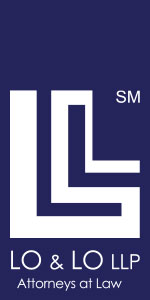Chapter 7
Chapter 7 is designed for people who are having financial difficulties and are not able to re-pay their debts. Chapter 7 is also available for corporations, LLCs, or other business entities.
Under the changes to the Bankruptcy Code that took effect October 17, 2005, you can usually qualify for a Chapter 7 if your average gross monthly income for the last six months is below your state’s Median Income, or you can show “special circumstances” that would allow you to qualify for Chapter 7. Special circumstances means after deducting mortgage payments, car payments, and other allowable expenses, your disposable income is less than $100 per month after the Means Test calculation. The Median Income is based on your family size. For example, for a family with 2 minor children, the Median Income is $79,971 (for case filed on or after March 15, 2009) in California. The number will change periodically according to Census Bureau.
 The filing fee for a Chapter 7 is $335.00. Once Chapter 7 is filed with the court, the court will issue an Automatic Stay Order stopping creditors from calling, writing and suing you. Any pending actions such as garnishment of your wage, levy of your accounts, lawsuits, and foreclosures will also be stopped. Creditors will be sanctioned by the Court upon motion if they violate the order after receiving notice of the bankruptcy filing.
The filing fee for a Chapter 7 is $335.00. Once Chapter 7 is filed with the court, the court will issue an Automatic Stay Order stopping creditors from calling, writing and suing you. Any pending actions such as garnishment of your wage, levy of your accounts, lawsuits, and foreclosures will also be stopped. Creditors will be sanctioned by the Court upon motion if they violate the order after receiving notice of the bankruptcy filing.
Under Chapter 7, you can exempt, or keep, your assets up to the limit allowed under California Law, or, if you have not lived in California for the past two years, under the state’s exemption law that applies to your case. In California, you have the option of choosing to protect the net equity of your home or wild card exemption of all assets. Most retirement accounts and pensions are exempt in whole or in part. Secured property, normally your car and house, may not have any net equity, in which case you can keep them as well. If there is net equity in your secured property, they may be exempt up to the limit provided by law.
A Trustee is appointed to take over your property. The Trustee schedules a hearing (called a 341(a) hearing) to examine you under penalty of perjury. Creditors can attend the hearing and ask questions pertaining to your assets and debts. Creditors have 60 days after the hearing within which to file any objections or adversary proceedings. The Trustee either abandons or liquidates most non-exempt property and uses the proceeds to pay your creditors according to priorities of the Bankruptcy Code.
Once your Chapter 7 case is over, you receive a Discharge. A discharge is a court order which states that you do not have to pay all dischargeable debts. The discharge prevents and permanently enjoins your creditors from taking any steps to try to collect their unsecured debt. They cannot call you, write you, sue you, or take any steps that could be considered an attempt to collect its debt. If you want to keep property that has a lien on it, you must keep your payments current, and may be required to reaffirm your debt. Some debts cannot be discharged. Typical examples are money or property obtained by fraud (upon a finding by the court), child support, alimony, and other domestic support obligations, some taxes, student loans (dischargeable only upon finding of undue hardship), criminal restitution, torts committed with willful and malicious intent, and debts for death or personal injury caused by operating vehicles while intoxicated with alcohol or drugs.
Corporations, LLCs, and other business entities do not receive a discharge.
